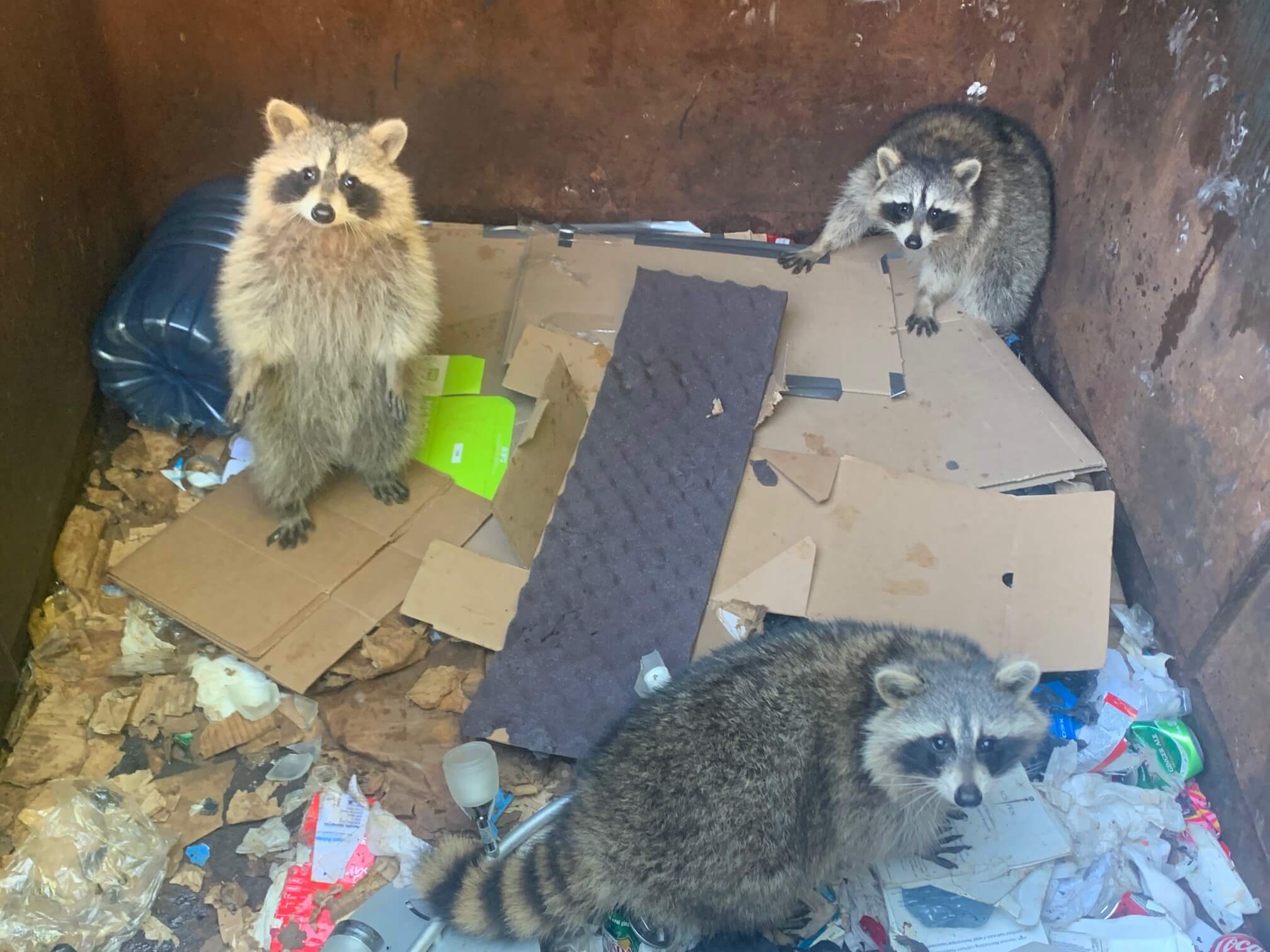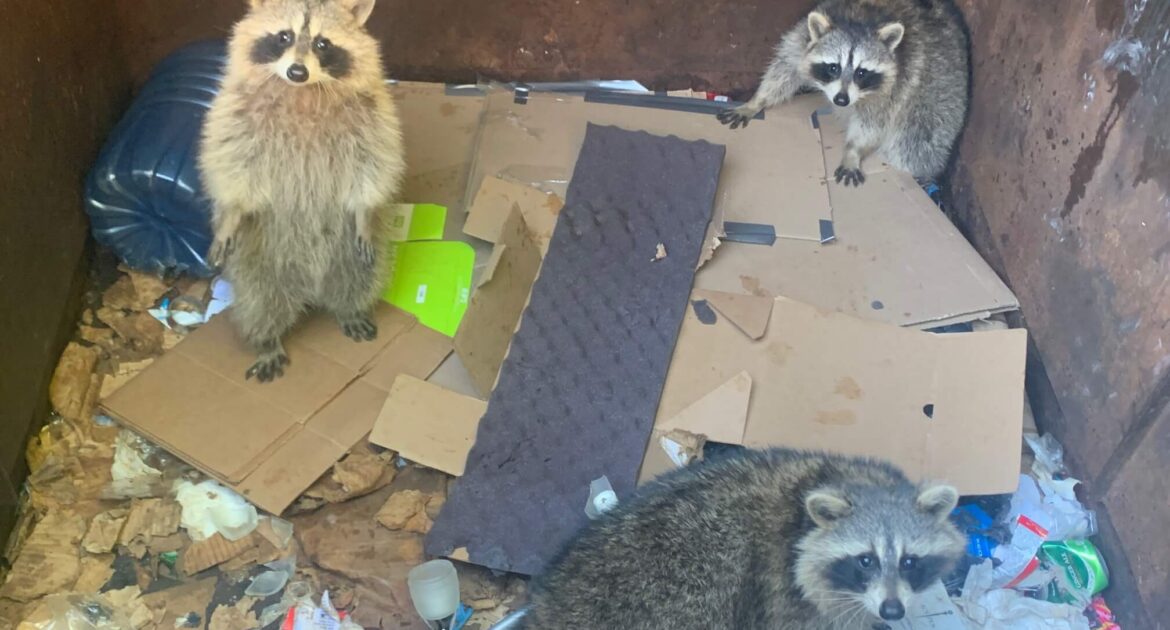If you live in an urban or suburban area, you have probably heard stories about raccoons getting in neighbours’ garbage cans, or perhaps it has happened to you. This may seem like bizarre behaviour to you, and you may wonder how to keep raccoons away. Understanding why raccoons do this may help you prevent it.
What Attracts Raccoons to Trash Cans?
The attraction of trash cans for raccoons isn’t that mysterious: They like to eat the food they find inside. Their sharp sense of smell alerts them to the presence of food scraps, and then they do whatever they can to get the tasty treats out. The first thing they try is usually to knock the can over, and if the lid doesn’t seal tightly, that’s usually all it takes.
This may seem like unnatural behaviour, and it is in the sense that raccoons survived centuries without feeding on human garbage. However, it is part of raccoons’ nature to eat whatever food they find. As human developments started taking over raccoons’ habitat, some relocated while others stayed. The latter population of raccoons discovered that they could find a lot more food within a much smaller area when living alongside humans than they could in the wild, so they stayed and adapted.
What Do Raccoons Eat?
Raccoons are omnivores, meaning that they can eat either plants or animals. This means that any food scraps in your garbage can are fair game, including chicken bones, eggshells, corn cobs, and even the crusts of bread that you cut off your peanut butter sandwich.
However, while raccoons aren’t too picky about the type of food they eat, they avoid eating anything spoiled or rotten. Many of the food scraps in your garbage are still technically edible. They may not be high enough quality for you, but raccoons have lower standards. Nevertheless, they don’t eat food once it goes bad because it might make them sick.
Once raccoons are on your property, they may find other food sources besides your garbage cans. Fruit or nut trees, vegetable gardens, and some types of flowers can all provide food for raccoons. So can birdseed from a feeder or pet food if you leave it outside. You can discourage raccoons from entering your property by getting rid of these food sources, if possible. If you don’t want to get rid of nut-bearing or fruit-bearing trees, you can at least keep your yard clean by picking up windfalls as soon as possible.
How Can You Protect Your Garbage Cans From Raccoons?
If your wondering how to get rid of raccoons, wildlife-proof trash cans with tightly sealed lids may be an effective deterrent. If these aren’t feasible for you, you can keep the cans tied to a fence until collection day or use bungee cords to secure the lids tightly. Try keeping your trash inside until it’s time for collection, then wait until the morning of collection day, if possible, to put the cans outside.
Raccoons are prey animals that are constantly alert for threats. They are also nocturnal, so they don’t like bright lights. Some people install motion-activated flood lights near their trash cans so that the light will startle raccoons and they’ll run away. This may work for a while, but raccoons are so intelligent, they may figure out after a while that the light doesn’t pose a threat.
How Can Raccoon Removal Newmarket From Skedaddle Help?
If you can’t deter raccoons from your property, our technicians can remove them. Once we remove the animals, we raccoon-proof the home so they can’t come back. We start by identifying all possible entry points, then we use galvanized steel screens to seal them off. Thirty years of experience has taught us that this material is effective at keeping raccoons out of your home. Learn more about the services we offer in Newmarket.




